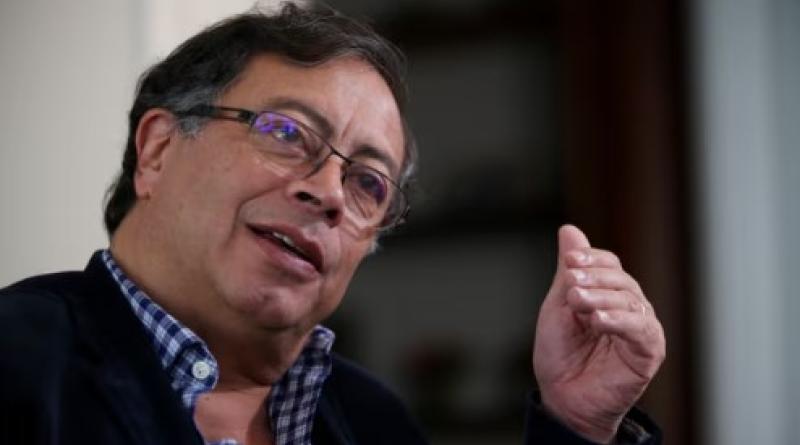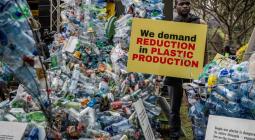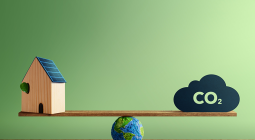Middle-class fear of green policies fuels rise of far right, Colombia’s Petro warns

Middle-class fears of losing a high standard of living because of green policies is driving the rise of the far right across the world, the president of Colombia has warned.
In a wide-ranging interview with the Guardian at the Cop28 UN climate summit, Gustavo Petro, Colombia’s first leftwing president, said the world had to find carbon-free ways of being prosperous, and that his country’s rich biodiversity would be the basis of its wealth after phasing out fossil fuels.
The South American country has joined an alliance of states calling for a fossil fuel non-proliferation treaty, with Petro saying he was trying prevent the “omnicide of planet Earth”.
The 63-year-old former guerrilla fighter, who won power in 2022, said Brazil needed to “transform its mindset” on the Amazon to prevent its destruction. Petro has disagreeed with the Brazilian president, Luiz Inácio Lula da Silva, over the role of oil exploration in the world’s largest rainforest, which Petro has sought to rule out.
He said conserving the Amazon rainforest was a fundamental part of global climate action and that its importance was well understood by Colombians.
Colombia has become a leading voice at Cop28 in the first negotiations on whether to phase out fossil fuels, despite the country being a significant producer of coal, oil and gas.
“All consumption that makes one feel comfort, prosperity and a high standard of living in the United States, Europe, and other societies, such as China, is based on intensive consumption of carbon. When decarbonisation is proposed, that basis falls out. Of course it’s difficult to present an alternative,” Petro said.
“The fight against the climate crisis endangers [that prosperity], denies it, and to that extent there is a growing fear in the middle and upper classes of the world about what the leap to a decarbonised economy means.”
“I think that the rise of the extreme right is fundamentally driven by fear,” he said. “Fear is weighing on the mentality of the middle classes, which are very powerful in Europe and the United States, about losing consumption, comfort, the standard of living, which no doubt may grow with the transformation.”
He warned that urgent action on cutting emissions was required to prevent more people being forced from their homes because of the climate crisis.
“Migratory flows are going to increase in the world if we don’t act quickly. And it is simply because the tropics are running out of water. Migration will grow to become hundreds of millions. That is foreseeable, and so a construct is emerging as in Germany in the 1930s, based on the fear of difference.
“And anti-migration policies deepen, and the middle and upper classes, even in white Europe, begin to construct a sense of barbarity, of the barbarians who are coming,” he said.
On Tuesday at Cop28, Colombia joined the Beyond Oil & Gas Alliance, a coalition of governments and organisations working to facilitate the phase-out of oil and gas production. Petro acknowledged that fossil fuels were the basis of much of Colombia’s current economy, but said that would change after production ended.
“Biodiversity, in my opinion, is the source of our new wealth and Colombia could attain it,” he said. “The countries with the most biodiversity in the world, in order, are Brazil, Colombia and Venezuela. If we notice, we have our wealth there.”
Petro was a leading voice calling for the end of fossil fuel exploration in the Amazon at a summit in August organised by Lula to coordinate its conservation. Despite progress on slowing the rate of deforestation in Brazil, Lula has pursued oil exploration in ecologically sensitive areas, and Brazil is due to join the oil cartel Opec in 2024.
When asked about his disagreement with Lula on the role of oil exploration, Petro said it came down to different national contexts.
“The Amazon jungle, with rising temperatures, may burn, with which all that mass of CO2 absorbed for millennia returns to the atmosphere. That is one of the points of no return. So, caring for the Amazon jungle is one of the greatest objectives of a struggle against the climate crisis.
“We have pulled together the governments that have responsibility for the jungle, in Leticia, Colombia and in Belém do Pará, in Brazil – President Lula has been present at all these events. Brazil has to undergo a transformation of its mindset.
“It is much easier in Colombia. In Colombia we understand the importance of the jungle, though there are predatory factors at work that have to do with illegal mining [and] money laundering associated with drug trafficking, which has become a motor of depredation there.
“Yet in Brazil the idea of transforming the jungle into large agrarian plantations, in large estates, has been developing for a long time. Many indigenous and environmental leaders have died, have been assassinated, because of that struggle.
“Politically, it is difficult in Brazil to propose the idea of saving the jungle and not exploiting it commercially, its lands, its territories. That is why a Bolsonaro was possible,” he said.





